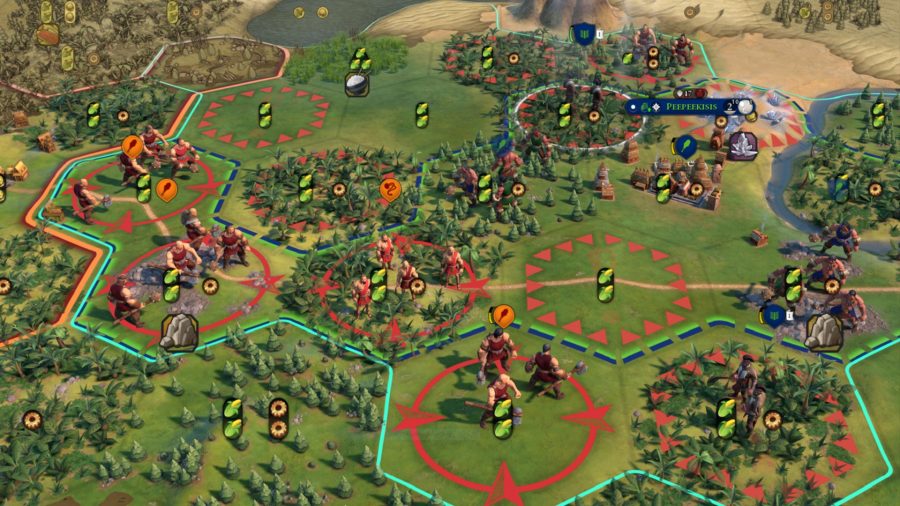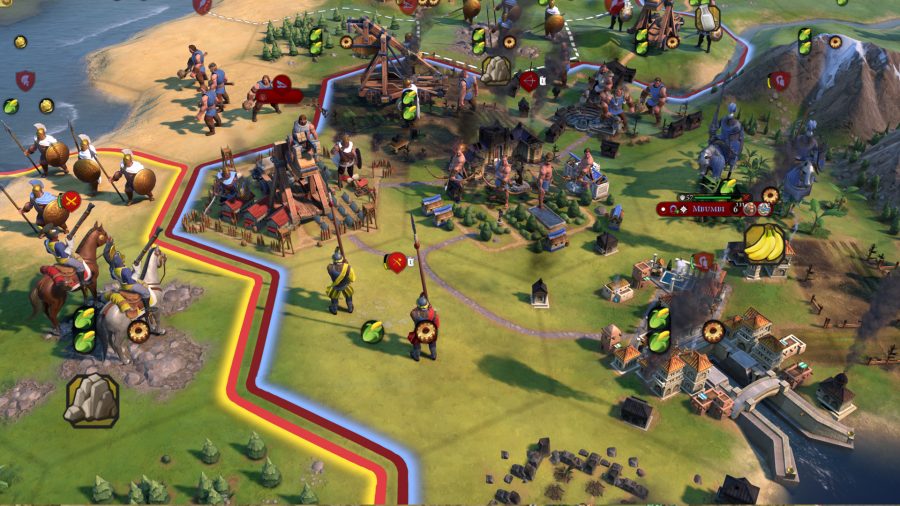The recent Civilization VI Anthology announcement, which Firaxis producer Kevin Schultz called the “complete” and “final” Civ 6 experience, serves as yet another clue that the studio’s work on the popular 4X game could be winding down. While Firaxis is mum on what’s next for the series, it’s likely that Civilization 7 — or perhaps something bigger — is on the horizon.
Despite its success, Civ 6 still has room for improvement. One area in which the strategy game suffers is its artificial intelligence, or AI. Civ 6’s AI leaders don’t have the technological capability to make intelligent plays that mimic those a human player would make. Instead, Firaxis has opted to make the game more challenging at higher levels by giving AI leaders ever greater statistical advantages. For example, at deity-level difficulty, each AI gets a 32% bonus to its science, culture, and faith output, an 80% increase in gold output, +4 combat strength for all units, and three free settlers at the start of the game, among other bonuses.
This all certainly makes the game more difficult, but not necessarily better. An AI that’s challenging primarily because of its inflated stats lacks one major element that’s fundamental to the concept of AI: intelligence.
In Civ 6, the AI’s boosted stats are the strategy equivalent of an FPS game adding more bad guys, giving them more health, and calling it ‘hard mode’. A shooter with a meaningful hard mode makes enemy behaviour pose more complicated questions of the player: it might change their movement patterns, enable new tactics like flanking or use of grenades to flush the player from cover, or increase penalties for failure.
This makes the game more difficult, true, but by adding richness and complexity to the player’s own thought process rather than by simply cranking the numbers up. More importantly, there’s never a point where it’s functionally impossible to win.
With a game as RNG-based and situational as Civ, an early encounter with an aggressive civilisation on deity can make the game outright unwinnable. But if a player makes it to the late game and snowballs past the AI, the last few eras can be as tedious as they are on any other difficulty, because the AI is equally unable to react intelligently to its impending loss.
It’s surely far more complicated to design several gradations of intelligence for an AI in a complex turn-based strategy game like Civ than it is in a shooter. I’m not saying the problem is easily solved – when Civ 6 was in early development, this approach to AI, which combines logic trees with major stat boosts, was quite possibly the only feasible programming option. However, a lot can happen in eight years, and the technology driving game-based AI continues to evolve.
Back in 2017, Elon Musk gave strategy game players a taste of what they could expect from future AI models when his company, OpenAI, put its OpenAI Five Dota 2 AI up against the world’s best Dota 2 players. The AI ‘learned’ by playing the equivalent of 10,000 years of Dota games against itself, then used this knowledge to defeat its opponents in highly controlled settings.
Although Dota 2 is a MOBA, these learning capabilities represent one possible future for the Civilization series. In applying machine learning to data collected from hundreds of thousands of hours of playtime from people of all skill levels, Firaxis could theoretically structure its AI to make ‘smarter’ decisions.
Of course, it may still be decades before we see OpenAI-level intelligence in a commercial game. But it’s reasonable to expect that the next Civ will draw on advancements in AI technology to create a more balanced gameplay experience.
With all the caution and humility that playing ‘armchair dev’ requires, some AI improvements appear to be quite straightforward. For example, rather than getting rid of AI bonuses outright, Firaxis could scale those bonuses with each era. There are already mods that do this, such as Smoother Difficulty 2.0 But at a more advanced level, the game could incorporate deep learning to make predictions about the player’s playstyle and then learn to counter accordingly.
Scientists are already running deep learning experiments in games such as chess and StarCraft II, and the Civilization series is in a prime position to take these lessons and apply them at a grand scale. While there’s no expectation that the AI would respond to each unique decision, broad implementation across key metrics could add to the overall balance.
The next chapter in the Civilization series will lay the groundwork for Firaxis to implement AI that truly seems intelligent. The studio mantra is to ‘make life epic,’ and a Civ game enhanced with smart AI would be about as epic as it gets.



